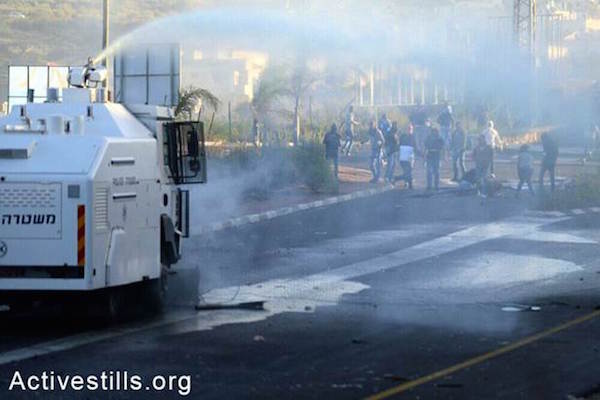
|
Redefining Israel’s Jewish and Democratic Character
Bill for a New Basic Law: Israel as the National State of the Jewish People (MK Ze’ev Elkin) Ministerial Committee for Legislative Affairs Sunday 16/11/2014 – Determining the Government’s Position
ACRI’s Position: Put simply – this is a particularly dangerous bill with extremely far-reaching implications. The bill as it stands would subjugate the democratic character of the State of Israel to its Jewish nature and place the democratic rights of all citizens in danger. This bill contains a number of provisions that would violate fundamental human rights – especially the rights of Israel’s Arab minority which constitutes approximately 20% of the Israel’s population. Among other provisions, the bill would remove Arabic as one of Israel’s official languages, granting it a lower “special status,” and would allow for the separation of housing blocks on the basis of religion or nationality. ACRI believes that infringing on the basic rights of one-fifth of the country’s population refutes the notion of equality and would constitute a fatal blow to civil equality, a central pillar of democracy. |
|
Punishing Employers of Asylum Seekers
Notice by the Internal Affairs and Environment Committee to reactivate a bill from the previous Knesset Full Knesset Plenum
ACRI’s Position: This bill seeks to expand sanctions against those who employ asylum seekers by imposing an extended five year prison sentence. Since the bill passed its first Knesset reading in July 2012, the reality on the ground has changed, and the assumptions underlying the committee’s discussion are no longer relevant. Since the first reading, the Supreme Court and the State Comptroller have made clear that the Basic Law: Human Dignity and Liberty applies to asylum seekers. This means that the government has a duty to ensure their basic rights, especially with regard to employment, health and welfare. The Internal Affairs Committee is seeking to re-initiate a discussion on this bill, despite the fact that it would undermine these rulings. Instead of remedying the flaws within current government policy, this bill would continue to systematically violate the rights of asylum seekers by imposing punitive measures. As an alternative to advancing this bill, ACRI urges members of the Knesset to promote initiatives that encourage the employment of asylum seekers, such as providing work permits and eliminating fees involved in their hiring. These policies would be mutually beneficial; at once meeting Israel’s labor needs, freeing asylum seekers from relying on community mechanisms and opening up employment avenues outside of South Tel Aviv. |
|
The Right to Water – Disconnecting Families from the Water Supply
Preventing the Disconnection of Families from Water Due to Debt Economic Affairs Committee Monday, 17/11/2014 – Committee Discussion Update: The day after the committee hearing, the Israeli Water Authority announced that beginning from 2015, it will not allow private water corporations to disconnect private households from the water supply without a special permit, and that disadvantaged homes would be protected from water disconnections. |
|
Marking the Struggle Against Poverty in the Knesset Internal Affairs and Environment Committee – Advancing the goals of affordable housing in legislation |
|
In the Spotlight: Police spray putrid water on Palestinian homes, schools For further information on ACRI’s campaign to prevent the arnitrary use of Skunk Spray in East Jerusalem, click here. |








